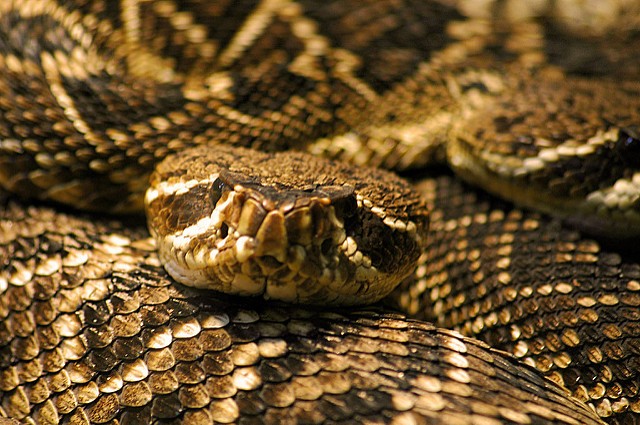Snake bites are rare, but you do need to know what to do if you live in an area with venomous snakes.
More importantly, you need to know what not to do.
Though U.S. medical professionals may not agree on every aspect of what to do for snakebite first aid, they are nearly unanimous in their views of what not to do.
Among their recommendations:
• No ice or any other type of cooling on the bite. Research has shown this to be potentially harmful. The same applies for hot packs.
• No tourniquets. This cuts blood flow completely and may result in loss of the affected limb.
• No incisions in the wound. Such measures have not been proven useful and may cause further injury.
• Do not eat or drink anything unless advised by medical sources.
• Do not engage in strenuous physical activity.
• Do not drink any alcohol or use any medication.
• Do not apply oral (mouth) suction to bite.
• Do not remove dressings/elastic wraps until arrival at hospital and antivenom available.
First Aid for Snakebites
Many health-care professionals embrace just a few basic first-aid techniques. According to the American Red Cross, these steps should be taken:
• Wash the bite with soap and water.
• Immobilize the bitten area and keep it lower than the heart (if possible).
• Get medical help.
Some medical professionals, along with the American Red Cross, cautiously recommend two other measures:
• If a victim is unable to reach medical care within 30 minutes, a bandage, wrapped two to four inches above the bite, may help slow venom. The bandage should not cut off blood flow from a vein or artery. A good rule of thumb is to make the band loose enough that a finger can slip under it. The bandage should be a crepe or elastic bandage and should be wrapped as you would for a sprain.
• A suction device may be placed over the bite to help draw venom out of the wound without making cuts. Suction instruments often are included in commercial snakebite kits.
What to Tell The Staff at the Hospital
• Ask Staff to Contact Poison Control Immediately.
• Locate nearest Antivenom/Antivenin Resource.
• Ask staff to use physician consultants available through Poison Control.
• Describe the snake to the consultant so that the correct antivenin can be administered (if needed and one is actually available for that species of snake)
An encounter with a snake is rare. Even rarer is a physical encounter that leads to a snakebite.
If that happens, however, what you do can mean the difference between life and death or maiming. More importantly, what you do not do can mean the same.
For more info on snake bites, venomous snakes and how to co-exist with them, visit Arachnophiliac.
Featured Image via Mike Johnston/Flickr
